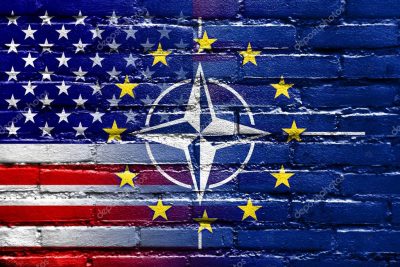EU Excluded from US-Russia Talks Due to Its Weak Foreign Policy

All Global Research articles can be read in 51 languages by activating the “Translate Website” drop down menu on the top banner of our home page (Desktop version).
To receive Global Research’s Daily Newsletter (selected articles), click here.
Visit and follow us on Instagram at @globalresearch_crg.
***
The European situation at NATO looks increasingly complicated. The gradual distancing of interests between the European Union and the US is evident, now materialized in the exclusion of European governments from the Summit between Washington and Moscow, scheduled for this month of January. Apparently, Washington is taking a rigid stance on the EU’s role in NATO and excluding Europeans from a prominent position in current international negotiations – probably due to the absence of a solid and unified foreign policy among European states.
Talks between Russians and Americans about the Ukrainian situation are generating great expectations around the world. Significant changes can come from this event, which promises to be an initial step for Washington and Moscow to start on a path of peace and cooperation in Eastern Europe. However, a curious fact that has generated great controversy is the absence of the EU in this summit. Considering the European importance in the composition of NATO’s military personnel and the fact that most of the member states of the alliance are on the European continent, it would be minimally reasonable to include European leaders in this type of event. But, in the complete opposite direction, Washington banned the European presence and decided to negotiate alone with Russia, which leaves many questions unanswered.
Around the world, several analysts have been struggling to explain the reasons for not including Europeans in these talks. The most widely accepted thesis so far is that the US made such a decision because the EU is supposed to have little influence on international policy. According to a recent Financial Times article, where anonymous sources are cited, the European bloc tends to be marginalized by the US with regard to the NATO-Russia topic because it does not have a strong and unified internal policy, being weak in its international projection, vulnerable to various internal polarizations and divisions.
In that article, it is argued that the EU has so far failed to establish a set of efficient measures to deal with the Ukrainian situation, failing to find joint responses with the US and NATO to the supposed “Russian threat”. Washington has warned of such a “threat” for months, but European efforts in order to confront it have been minimal, creating great friction within the Western world.
Indeed, this kind of stance on the part of the EU is understandable. There is no reason for the bloc to join the anti-Russian paranoia spread by the US about the Ukrainian case. The narrative about the “Russian invasion plan” is so weak and unsubstantiated that it is hard to believe that any government – other than Ukraine itself – is really taking it seriously. Europeans, when dealing with this type of discourse, act rationally: the narrative is endorsed, but there is no desperation or urgency to create a countermeasure plan, as it is evident that such an invasion will not happen. Anti-Russian paranoia and the rush to create defense plans are of interest only to the US and Ukraine. Europe’s role in this scenario is only to deliberate about peace to be maintained on the European continent, but there are no rational justifications for the EU to join any paranoia.
However, the exclusion was received disappointingly among Europeans. The bloc would like to participate in negotiations and to deliberate with Russians and Americans on the future of security in the eastern portion of the continent, which will not be possible due to Washington’s intransigent position. The EU repeatedly asked the US for permission to participate in the negotiations, but it was rejected without any possibility of dialogue, generating great discomfort. For the EU, the worst case scenario would be to become a mere spectator of the changes taking place within the European continent itself – and this is precisely what is about to happen.
What Washington still does not seem to understand is that this kind of attitude just tends to drive more and more Europeans away from NATO, creating internal dissension, friction, and polarization in the Western military alliance. Reacting to the American boycott, some EU members chose to contact Moscow directly in order to form a bilateral dialogue. Jens Plötner, German foreign policy adviser, and Emmanuel Bonne, Macron’s diplomatic adviser, will arrive in Moscow later this week to meet with some Russian officials. Then both will travel to Ukraine. Clearly, an internal parallel diplomacy is being developed within NATO, with the two main European powers negotiating with Russia directly, without US permission.
The consequences of this scenario remain to be known. It is possible that the terms negotiated with the Russians diverge between Europeans and Americans, considering that the EU and the US have notoriously different international projects. On the other hand, it is also possible that there is a general consensus among Western countries on the Ukrainian case. However, one effect is evident and cannot be denied: NATO is increasingly polarized, and it is no longer possible to speak about a true US-EU alliance.
*
Note to readers: Please click the share buttons above or below. Follow us on Instagram, @crg_globalresearch. Forward this article to your email lists. Crosspost on your blog site, internet forums. etc.
Lucas Leiroz is a researcher in Social Sciences at the Rural Federal University of Rio de Janeiro; geopolitical consultant.

